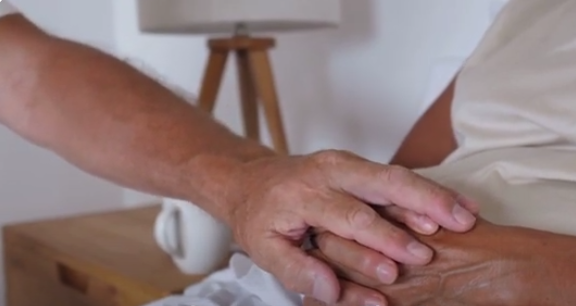Questions Answered in This Article:
- How Local Detox Centers Can Differ in Treatment and Care
- How Long Does It Take To Detox From Drugs?
- Why Detoxing at Home Can Be Risky
- How Much Does Drug Detox Really Cost?
- What Happens After Detox?
Deciding to stop using drugs or alcohol is a big step. Naturally, many people begin by looking for drug detox programs near me. Staying nearby feels comfortable, and being close to family support can be a big help. But once you start researching, the number of drug detox near me programs can feel overwhelming. It’s not always easy to figure out which ones provide the care you truly need.
Not every detox center is created equal. Some offer strong medical supervision, personalized care plans, and experienced staff. Others may lack the resources to properly manage withdrawal or support long-term recovery. For anyone struggling with substance use, these differences are critical.
How Local Detox Centers Can Differ in Treatment and Care
It’s common to want to stay close to home when seeking treatment. Searching for a drug detox near you makes sense—it feels more accessible and familiar. However, location shouldn’t be the only deciding factor. Some nearby programs focus solely on quick detox, but don’t offer comprehensive addiction treatment or continued care afterward.
When dealing with substance use disorder, you need more than just basic services. Proper detox centers should offer medical care, emotional support, and a clear plan to help you continue your recovery after the initial detox process.
Different Types of Drug Detox Programs
The best detox approach often depends on your specific needs and what substances are involved. Here’s a breakdown of the most common types of drug detox:
Medically Supervised Detox
Medical detox is one of the safest options, especially for drugs or alcohol that may cause severe withdrawal symptoms. Healthcare professionals monitor your condition, provide medications when needed, and ensure your safety throughout the process. Many inpatient detox or residential treatment programs include this level of care.
Social or Non-Medical Detox
Some detox programs focus on offering a safe, supportive space without providing medical services. While this may work for milder cases, serious withdrawal symptoms might go unmanaged, increasing health risks.
Outpatient Detox Programs
Outpatient programs allow you to live at home while receiving treatment at scheduled times. This option can work well if your withdrawal symptoms are mild and you have a strong support system.
Inpatient Detox Programs
Inpatient detox centers provide 24/7 care and supervision. These programs are ideal for those with severe substance use issues, co-occurring mental health conditions, or those who need a structured environment to begin recovery safely.
Understanding the Detox Process
When you begin the drug detox process, it’s important to understand that it’s different for everyone. The duration and severity of withdrawal symptoms depend on various factors, such as the substance you’re detoxing from, how long you’ve been using it, and your general health.
For example, alcohol withdrawal or opioid withdrawal can be especially challenging, and some people may experience more intense symptoms than others.
The detox process typically involves:
- Medical supervision: Healthcare professionals monitor withdrawal symptoms and provide medications to ease discomfort.
- Detoxification stages: Depending on the drug, the process may be broken into different stages—initial withdrawal, stabilization, and preparing for treatment.
- Safety: For substances like alcohol or benzodiazepines, detoxing without medical help can be dangerous. Medical detox is recommended to prevent life-threatening symptoms.
Detox is just the first step toward recovery, and while it’s a vital part of the process, continuing treatment and support are essential for long-term success.
How Long Does It Take To Detox From Drugs
The time it takes to detox depends on what substance was used, how long it was used, and your overall health. Here’s a general idea:
- Short-acting opioids (like heroin): Symptoms often start within 6–12 hours, peak after 1–3 days, and ease within a week.
- Long-acting opioids (like methadone): Symptoms may start in 1–2 days, peak in a week, and last for several weeks.
- Alcohol: Symptoms usually begin within 8 hours, peak after 1–3 days, and ease in 5–7 days.
- Benzodiazepines: Withdrawal can begin in 1–4 days, peak in two weeks, and last for weeks or months without proper care.
These are just estimates. Everyone’s experience is different. Detox can be shorter or longer depending on the person, which is why having professional support is so important.
Common Side Effects During Detox
While detoxing, it’s normal to experience a range of physical and emotional symptoms. Some of the most common side effects of drug detox include:
- Nausea or vomiting
- Muscle aches
- Sweating and chills
- Anxiety or mood swings
- Insomnia
- Cravings
- Headaches or tremors
The intensity of these symptoms depends on what substances you’ve used and how long you’ve used them. Having a team experienced in managing withdrawal makes the process safer and more comfortable.
Why Detoxing at Home Can Be Risky
It might seem easier or cheaper to try to detox from drugs at home, but this choice can come with serious risks. Without medical supervision, severe symptoms like seizures, dehydration, or heart complications can become life-threatening. Alcohol withdrawal and opioid withdrawal, in particular, can be dangerous without proper care.
Choosing a professional detox program instead of attempting detox at home ensures you have trained support if something goes wrong. It also means you’re more likely to complete detox successfully and continue into addiction treatment programs that support long-term recovery.
Risks of Improper Detox
Improper detox—whether done at home or at an under qualified facility—can lead to severe health issues, relapse, or worse. Dangers of improper detox include:
- Dehydration and malnutrition
- Heart problems or high blood pressure
- Mental health crises, including depression or suicidal thoughts
- Increased risk of overdose after relapse
Detoxing is never just about removing substances from your body; it’s about doing so safely while laying the groundwork for lasting recovery.
How Much Does Drug Detox Really Cost?
The cost of drug detox depends on the type of program you choose. Here’s a breakdown:
- Inpatient detox: This option is more expensive because it provides 24/7 medical care and supervision.
- Outpatient detox: It’s usually cheaper, but you’ll need to manage withdrawal symptoms on your own.
- Home detox: While it may seem less expensive, detoxing at home can be risky without professional help.
On average, inpatient detox can cost between $1,000 to $2,500 per day. Some facilities may offer sliding scale fees or accept insurance for alcohol rehab and addiction treatment. Be sure to contact the facility directly to get more details about costs and payment options, especially if you have insurance coverage.
What Happens After Detox?
Once the detox phase is complete, you’ll likely transition into ongoing treatment. Detox alone is not enough to ensure long-term recovery. Here’s what typically happens after detox:
- Therapy and counseling: Treatment programs often include individual therapy, group therapy, and family counseling to address emotional and psychological aspects of addiction.
- Residential treatment: Many people move to residential treatment or inpatient detox to continue their recovery in a structured environment.
- Rehabilitation: You’ll start learning coping skills, relapse prevention techniques, and ways to address triggers that might cause you to relapse in the future.
- Support: Ongoing support from healthcare professionals, peer groups, and family members is essential for long-term success.
Remember, detox is just the beginning of your journey to recovery. Long-term healing requires a combination of medical support, therapy, and ongoing care to truly overcome addiction.
How to Choose the Right Detox Program Near You
Choosing the right detox program is an important step in your recovery journey. Here are some things to consider when looking for a detox center:
- Medical Supervision: Make sure the program offers medically supervised detox to manage withdrawal symptoms safely.
- Experienced Staff: Look for healthcare professionals who are experienced in helping with drug detox.
- Support for Mental Health: If you have mental health issues, find a program that can support both addiction and mental health.
- Ongoing Treatment Options: Ensure the program connects you to residential treatment or other recovery options after detox.
- Personalized Care Plans: The detox program should offer a treatment plan tailored to your needs.
Choosing the right detox program sets the foundation for a successful recovery journey.
Drug Detox Programs Near Me
Starting the detox process is a brave decision and the first step toward lasting recovery. Whether you’re struggling with alcohol, opioids, or other substances, choosing the right treatment center in Arizona can make all the difference. Staying close to home, where you can access local resources and family support, is an important consideration.
At The Hope House, located in Arizona, we provide a safe, medically supervised detox process with emotional support and a clear path forward. Our inpatient drug detox programs are designed to help you through withdrawal safely and prepare you for the next phase of recovery. We prioritize your well-being and long-term success.
Take the first step today—contact us at (480)-448-6149 or email contact@thehopehouse.com.


